The Opposite Sex
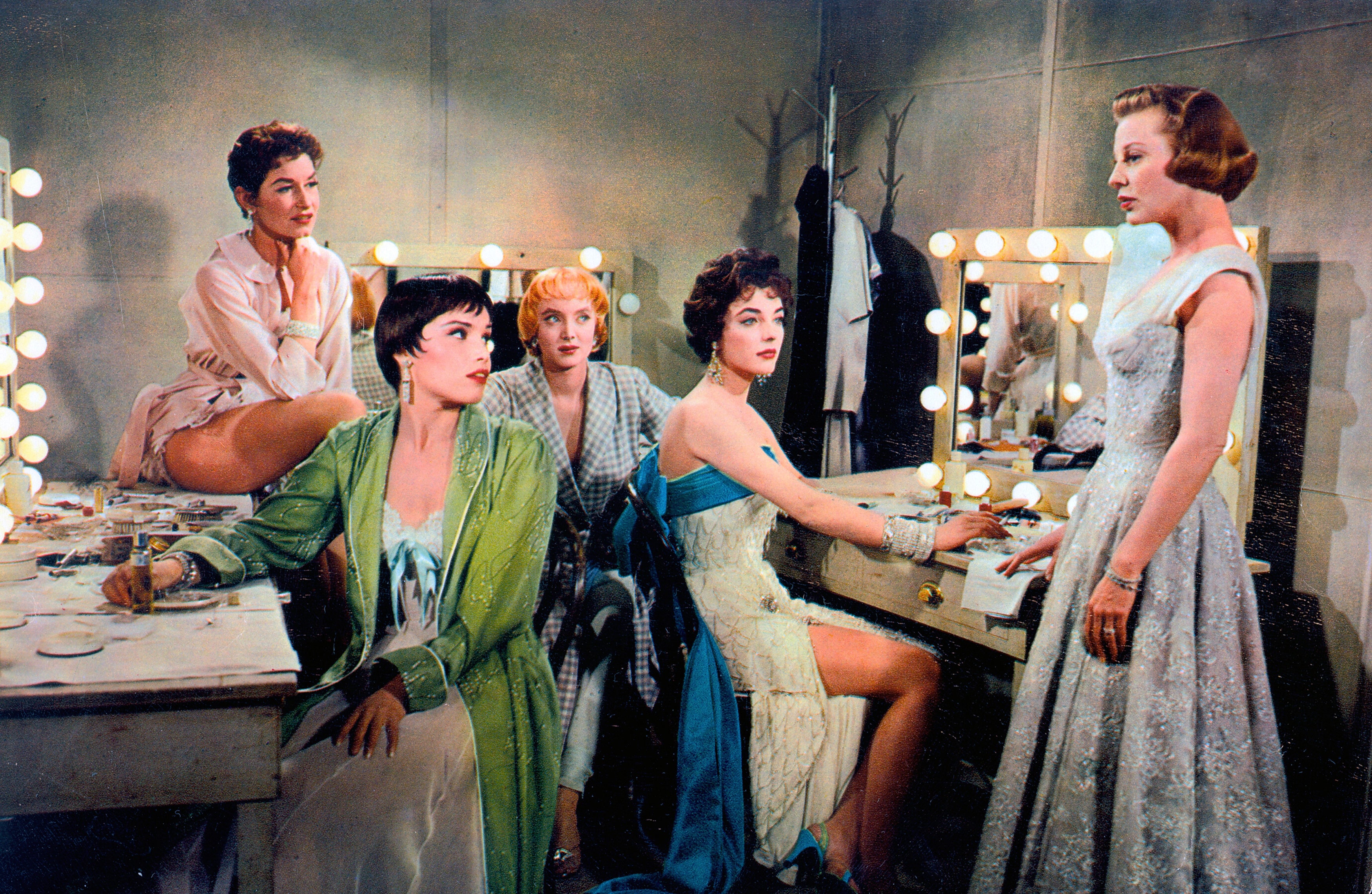
Brief Synopsis
Cast & Crew
David Miller
June Allyson
Joan Collins
Dolores Gray
Ann Sheridan
Ann Miller
Film Details
Technical Specs

Synopsis
At Sydney's salon in Manhattan, society ladies can get a shampoo, set and the latest gossip, all for one fee. One afternoon, Sylvia Fowler learns from manicurist Olga that theater producer Steven Hilliard is having an affair with chorus girl Crystal Allen. Although Sylvia and Steven's wife Kay are friends, Sylvia is thrilled with the scandal, and rushes to tell another of their friends, Edith Potter. Despite Sylvia's subsequent hints, Kay remains oblivious to any possible problems with Steven, to whom she has been loyally married for ten years. Later, the ladies meet at the 21 Club to plan their upcoming charity benefit, a theatrical production. While Kay, a former singer, is busy being wooed to return to work by her old agent, Mike Pearl, Kay's best friend, acerbic writer Amanda Penrose, rebukes Sylvia and Edith for circulating the gossip about Steven. When Kay returns, however, Sylvia suggests that she visit Olga for a manicure, and Kay innocently agrees. After lunch, Sylvia and Edith attend Steven's show to catch sight of Crystal, and although the pregnant Edith's morning sickness forces them to leave, later at a coffee shop they happen to sit next to Crystal, and the three exchange barbed remarks. Crystal leaves to call Steven, who has recently broken off their affair, and although she now urges him to see her again, he refuses. Meanwhile, Kay goes to Sydney's, where Olga, not realizing who she is, repeats the gossip about Steven. Kay is devastated, but tries to abide by Amanda's advice to pretend nothing is happening until Steven realizes his mistake and corrects it. That night, however, at the couple's anniversary party, Kay tries to keep up appearances, but when she is asked to sing a love song, she recalls the first time she met Steven, and breaking down, runs from the room. Soon after, Crystal reads in the paper that Kay has gone to Bermuda, and hoping that this signals a rift in the marriage, arranges to "bump into" Steven and the Hilliard's daughter, Debbie, at the park. There, Crystal manipulates Steven into spending the day together. That night, Kay returns home from Bermuda early, and Steven is thrilled to see her. At the charity benefit, Kay runs the show, not realizing that Crystal is performing in one of the numbers. When Crystal sees Kay, she plots to confront her and incite her jealousy. As Crystal has hoped, Kay goes to Crystal's dressing room, and after Kay calls her dress cheap, Crystal responds, "When Steven doesn't like something I wear, I take it off." Kay slaps her and runs out, and although Steven tries to follow her, she refuses to listen to his excuses. Soon after, she is on a train to Reno to obtain a divorce. Along the way she meets the Countess, a colorful older woman on her fourth divorce, and entertainer Gloria Dahl, who help Kay "celebrate" her new freedom. In Reno, the ladies stay at Lucy's Ranch, where playboy cowboy Buck Winston distracts Kay momentarily by trying to kiss her. Later, at the ranch, Kay is shocked to discover that the newest boarder is Sylvia, whose husband is leaving her for another woman. After reading a newspaper item Edith has mailed, Kay deduces that the other woman is Gloria, prompting Sylvia to initiate a fistfight with Gloria that wrecks the kitchen. Within weeks, Kay's divorce is finalized. Although the Countess and Gloria are solicitous, Kay clearly still pines for Steven. Amanda shows up to urge her to ask Steven for a reconciliation, but just then, Steven calls to inform Kay that he is marrying Crystal. Forced by financial exigency to return to her singing career, Kay, under her maiden name of Ashley, learns backstage that Sylvia has returned from Reno with Buck as her new paramour and is fast friends with Crystal. At the Hilliard home, meanwhile, Crystal has grown bored with Steven, is habitually nasty to Debbie and is secretly having an affair with Buck, whom Sylvia is grooming to be a singing star, hoping this will spur her friends' jealousy. The night of Buck's big opening, Kay refuses to join Amanda, the Countess and Gloria at the club, knowing Steven will be there with Crystal. Before bed, however, Debbie innocently reveals that Steven is unhappy and that Crystal is seeing Buck. Inspired, Kay puts on her most beautiful gown and goes to the club, where she greets Steven charmingly and enlists gossip columnist Dolly DeHaven's help in getting revenge on Sylvia. To do so, Kay follows Sylvia into the ladies' room and reveals that Crystal is seeing Buck. Although Sylvia does not believe her, Dolly soon sweeps in and confirms the news. As Buck begins his tune onstage, Sylvia drags Crystal into the ladies' room, followed by Kay, Dolly, Gloria and Amanda. Kay tries to prevent a fistfight between Sylvia and Crystal, which ends when Dolly threatens to print a story about the affair, which will ruin Crystal's chances of receiving alimony from Steven. After the Countess enters to report that Buck is a huge hit, Crystal retorts that she will elope with Buck, and then tells Steven that she is leaving him. When she informs Buck of her decision, however, he announces that he has no intention of marrying her. Kay spots Steven sitting alone, and when she calls him over, he is overjoyed finally to sweep her into his arms and onto the dance floor.

Director

David Miller
Cast
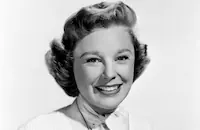
June Allyson

Joan Collins

Dolores Gray
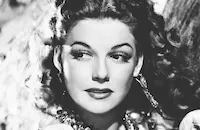
Ann Sheridan

Ann Miller

Leslie Nielsen

Jeff Richards

Agnes Moorehead

Charlotte Greenwood

Sam Levene

Bill Goodwin
Alice Pearce
Barbara Jo Allen

Sandy Descher

Carolyn Jones

Jerry Antes
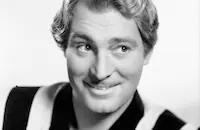
Alan Marshal
Jonathan Hole
Harry James
Art Mooney

Dick Shawn

Jim Backus

Joan Blondell
Celia Lovsky
Harry Mckenna
Janet Lake

Ann Morriss
Luana Lee
Madie Norman
Bunny Waters
Jo Gilbert
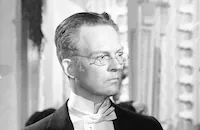
Don Dillaway
James Farrar
Estelle Etterre
Lillian Powell
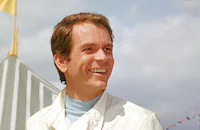
Dean Jones
Wayne Taylor
Harry Harvey Jr.
Charlotte Lawrence

Kay English
Gordon Richards
Joe Karnes
Joseph Corey
Joe Mcturk
Jesse Kirkpatrick
Wilson Wood
Jack Daly

Joel Fluellen
Dudley Dickerson
Eve Mcveagh
Elizabeth Flournoy
Doris Simons
Vernon Rich
Anna Maria Narasi
Marvin Bryan
Richard Grant
Karine Nordman
Allen Wood
Jan Arvan
Gabriel Curtiz

Juanita Moore
Sid Tomack
Sue George
Frank Scannell

Bob Carson
Lela Bliss
Gail Bonney
Maxine Semon
Jean Andren
Bob Hopkins
George Cisar
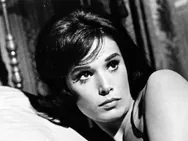
Barrie Chase
Ellen Ray
Vivian Marshall
Dian Fauntelle
Jean Dante
Helen Jay
Trude Wyler
Mary Alan Hokanson
Dee Turnell
Theona Bryant
Crew
Irving Aaronson
Nicholas Brodszky
Robert Bronner
Sammy Cahn
Daniel B. Cathcart
Ralph Freed
Eddie Freeman
Cedric Gibbons
A. Arnold Gillespie
Henry Grace
Joan Greer
Sydney Guilaroff
Charles K. Hagedon
Dorothy Hammerstein
Robert Ion
Fay Kanin
Michael Kanin
Joe Karnes
Kendrick Kinney
John Lipow
Walter Marsh
Skip Martin
John Mcsweeney Jr.
Dr. Wesley C. Miller
Warren Newcombe
Johnny O'neill
Joe Pasternak
Frank Prehoda
George Rhein
Helen Rose
Albert Sendrey
Robert Sidney
Stanley Smith
George Stoll
George Stoll
Robert Tucker
William Tuttle
Edwin B. Willis

Photo Collections
Videos
Movie Clip



Trailer
Hosted Intro
Film Details
Technical Specs

Articles
The Opposite Sex
June Allyson plays Kay Hilliard, a former musical theater star now a happy wife and mother -- happy, that is, until her friends find out that Kay's theatrical producer husband is cheating with a trampy showgirl, played by Joan Collins. The good wife heads for Reno, loses her husband to her rival, then puts on her Jungle Red war paint and sets out to win him back.
The Opposite Sex was something of a homecoming for Allyson. Signed by MGM to repeat her stage role in the film version of the musical Best Foot Forward (1943), she had spent a decade at the studio, and had been one of its most popular stars. Dissatisfied with the films she was being offered, Allyson left MGM in 1953 at the end of her contract, and had been freelancing at various studios. She had returned to MGM for a dramatic role in Executive Suite (1954), but The Opposite Sex would be her last musical at the studio. Most of the songs were new, and written by Nicholas Brodszky and Sammy Cahn for the film. But the best song in The Opposite Sex is a reprise of one of Allyson's early hits from Two Girls and a Sailor (1944) - a duet with trumpeter Harry James, "Young Man With a Horn."
Joan Collins writes in her autobiography that the role of Crystal in The Opposite Sex was her first "grown-up role." Crystal, she writes, "was definitely not a girl. She was all woman - and all bitch. Sexy, conniving and shrewd, she was the embryo Alexis," the character Collins would later play in the 1980s television series Dynasty. Collins also recalls two incidents from the filming of The Opposite Sex. In a confrontation scene, Allyson's character slaps Collins. "June hauled off and belted me. This little lady with her tiny hands had a punch like Muhammad Ali!" Allyson was distraught and apologetic, Collins' face bore the imprint of the slap, and shooting had to be postponed until the welts went down, writes Collins, possibly exaggerating for dramatic effect. Another incident was even more painful. A long scene with Crystal in a bubble bath talking on the telephone took several days to film. The bubbles were made with harsh detergent, and Collins had an allergic reaction that left her body raw and blistered. The prop department had to devise a method to keep the bubbles away from her, and ended up rigging a piece of plywood with a hole cut for her body. The plywood was covered with a rubber sheet and the bubbles, with Collins' upper body above the hole, and her tender lower body swathed in bandages below.
Sylvia, the cattiest tigress in the pack, is played by Dolores Gray, a stage musical performer who appeared in just a few films, but usually stole them from her better-known co-stars. Oddly, except for the title song over the opening credits, Gray's musical talents are not on display in The Opposite Sex. Neither are those of Ann Miller, who plays a showgirl in Reno dumping one husband to marry another. She has no dance numbers in the film. Most of the musical numbers feature Allyson, and are big, flashy, and to modern eyes, campy and unintentionally funny. Other standouts in the cast are Ann Sheridan as an acerbic writer, Agnes Moorehead, as a much-married countess, and Joan Blondell as an always-pregnant matron. Interestingly, Blondell had been married to Dick Powell, who later married Allyson and was still married to her during the making of The Opposite Sex. Apparently, the ladies avoided each other as much as possible during filming. Allyson does not mention the film at all in her autobiography. The men in the cast included Leslie Nielsen as Allyson's philandering husband, and Jeff Richards as a singing cowboy, but they added little to the proceedings.
The film's assets include Robert Bronner's eye-popping color cinematography, and Helen Rose's over-the-top costumes, an haute-fifties fashion parade. The satire is less pointed than that of The Women, but The Opposite Sex is one of the last examples of 1950s glamour, and of MGM's trademark deluxe style.
Director: David Miller
Producer: Joe Pasternak
Screenplay: Fay Kanin, Michael Kanin, based on the play The Women, by Clare Boothe Luce
Cinematography: Robert Bronner
Editor: John McSweeny, Jr.
Costume Design: Helen Rose
Art Direction: Cedric Gibbons, Daniel B. Cathcart Set Designer: Edwin B. Willis, Henry Grace
Music: songs by Nicholas Brodszky, Sammy Cahn, George E. Stoll, Ralph Freed
Principal Cast: June Allyson (Kay Hilliard), Joan Collins (Crystal Allen), Dolores Gray (Sylvia Fowler), Ann Sheridan (Amanda Penrose), Ann Miller (Gloria Dell), Leslie Nielsen (Steve Hilliard), Jeff Richards (Buck Winston), Agnes Moorehead (Countess Lavaliere), Joan Blondell (Edith Potter).
C-117m. Letterboxed. Closed captioning.
by Margarita Landazuri

The Opposite Sex
Quotes
I'd give every cent I've got to be a millionaire.- Go-fer
Trivia
Notes
The onscreen screenwriting credit reads: "Screenplay by Fay and Michael Kanin." The opening and closing cast credits vary slightly in order. A written foreword reads: "Manhattan Island... A body of land consisting of four million square miles-completely surrounded by women." Throughout the film, Ann Sheridan provides voice-over narration as her character, "Amanda Penrose." The Opposite Sex was based on the 1936 play by Clare Boothe Luce (credited onscreen as Clare Boothe) entitled The Women. A previous adaptation of the play, also called The Women, had been produced by M-G-M in 1939, directed by George Cukor and starring Norma Shearer, Joan Crawford and Rosalind Russell (see AFI Catalog of Feature Films, 1931-40). The screenplay for that version was written by Anita Loos and Jane Murfin and, like the play, contained no onscreen male characters. In a February 19, 1956 Los Angeles Times article, the Kanins stated that the studio included men in The Opposite Sex because "you can't play a love scene alone." Although that article also noted that there would be no big production numbers in the picture, several were included in the final film.
Modern sources state that M-G-M originally considered Grace Kelly for the role of "Kay Ashley Hilliard." In May 1955, Daily Variety announced that M-G-M was preparing The Opposite Sex for Esther Williams. By August 1955, according to an Hollywood Reporter news item, the studio planned to star Doris Day and Howard Keel in the film, but later cast Eleanor Parker in the lead role. As noted in a November 29, 1955 Hollywood Reporter item, Parker refused the role, citing her desire to rest after a strenuous two-year schedule, and was subsequently placed under suspension by M-G-M. A December 1955 "Rambling Reporter" piece in Hollywood Reporter stated that Peter Graves was considered for the role of "Buck Winston," and as of February 19, 1956, a Los Angeles Times article about the film included Vivienne Segal in the cast as "Countess." In March 1956, however, Hollywood Reporter noted that Segal withdrew from the production because "the broadness of the script characterization was too pronounced for her," and the role was taken over by Agnes Moorehead. Although a January 13, 1956 Hollywood Reporter news item adds Arthur O'Connell to the cast, he did not appear in the final film. Another Hollywood Reporter news item states that dancer Roberta Lane was cast, but her appearance in the film has not been confirmed.
Dolores Gray sang the title song over the opening credits. According to a 26 April Hollywood Reporter item, the titles were to run over five pantomime vignettes written by Sammy Cahn, but no vignettes were seen in the viewed print. Contemporary sources note that some scenes were filmed on location in New York City. An article in the October 1956 issue of Cosmopolitan claimed that Joan Collins contracted a severe allergy to bath bubbles, making her two bath scenes painful, and that during the scene in which Kay slaps "Crystal Allen," June Allyson's punch knocked Collins unconscious. The article added that Allyson was paid $3,000 per day for her role in the film.
Upon the release of The Opposite Sex, many critics compared the picture unfavorably to the earlier film version, stating that the biting humor of Luce's original play had been lost. In addition, the Motion Picture Daily reviewer expressed disappointment that celebrated entertainers Gray and Ann Miller were not given the opportunity to sing or dance in the film. The film marked Allyson's last role at M-G-M, where she had been a contract player since 1942.

Miscellaneous Notes
Released in United States Fall November 1956
CinemaScope
Released in United States Fall November 1956















